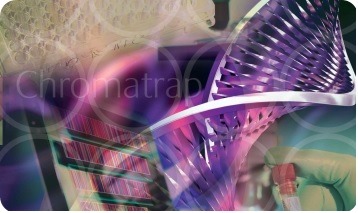
Chromatrap, a business unit of Porvair Sciences, announces a new patented protocol that is able to simply, quickly and efficiently enrich transcription factors from Native Chromatin.
Native Chromatin Immunoprecipitation (N-ChIP) is an alternative to traditional cross-linked (X-ChIP), which removes the need for fixing cells with formaldehyde prior to extraction. As a consequence the cells remain in a more natural 'native state'. The DNA/protein fragments are selectively immunoprecipitated using antibodies directed against the protein of interest and the resulting fractions treated to separate the DNA and protein components. Native ChIP is the technique of choice for the study of histone modifiers and certain abundant transcription factors that are likely to be bound to DNA.
Traditionally Native ChIP assays have involved five key time-consuming steps: Preparation of chromatin to be analyzed from cells ; Immunoprecipitation of chromatin using a high quality ChIP-validated antibody specific to the target protein ; isolation of the precipitated chromatin fragments ; DNA recovery from the precipitated product and finally DNA analysis.
The Chromatrap® N-ChIP kit provides a new quicker, easier and more efficient way of performing N-ChIP assays (Patent No. GB2482209). It uses discs of an inert, porous, polymer to which Protein A or Protein G has been covalently attached to maximize the capture efficiency of the target chromatin/antibody complex.
Unlike other approaches the Chromatrap® N-ChIP kit eliminates using agarose or magnetic beads resulting in more sample being retained during the extraction process. In addition Chromatrap® N-ChIP technology increases the affinity of antibody binding to antigens on Native chromatin as peptides are more accessible. As a result the Chromatrap® N-ChIP kit sets a new standard for enriching transcription factors from Native Chromatin.
Source: Chromatrap